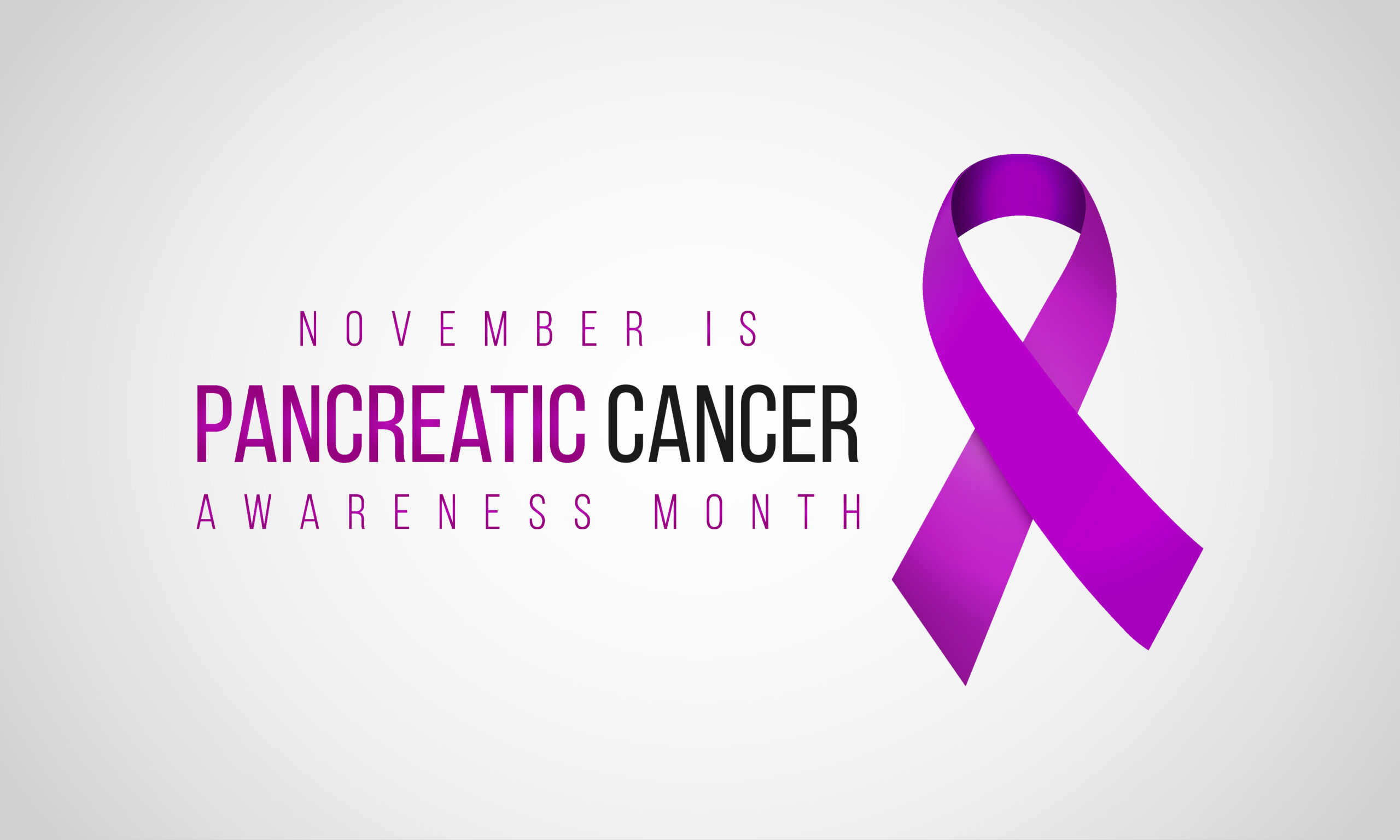
Pancreatic Cancer Awareness for Hospice
By: Dr. Margarita David Ph.D., RN
Pancreatic cancer affects over 60,000 people in the United States. Continue reading to learn more about pancreatic cancer in honor of Pancreatic Cancer Awareness Month.
What is pancreatic cancer?
Pancreatic cancer is a cancer that develops in the pancreas. The pancreas helps regulate the metabolism of sugar and aids in the digestion of foods.
What causes pancreatic cancer?
Although the exact cause of pancreatic cancer is still unknown, some risk factors that may contribute to the development of pancreatic cancer include:
- Smoking
- Diabetes
- Obesity
- Repeated inflammation of the pancreas (chronic pancreatitis)
Physical symptoms of pancreatic cancer
Many of the symptoms of pancreatic cancer are also common with other types of cancers. These may include:
- Abdominal pain
- Loss of appetite
- Unintended weight loss
- Jaundice
- Discolored stools
- Dark urine
- Dermatitis
- Bloating
How is pancreatic cancer diagnosed?
There are several ways that pancreatic cancer is diagnosed:
Blood tests
Three blood tests can help diagnose and treat pancreatic cancer:
- Liver function test. Measures the amount of bilirubin in the blood. If high this may indicate a tumor is blocking the bile duct.
- Carcinoembryonic antigen. Elevated levels in the blood are found in patients with cancers of the GI (gastrointestinal) tract.
- CA 19-9. Individuals with pancreatic cancer often have an elevation of this protein in their blood.
Biopsy
If blood work and imaging indicate the possibility of having pancreatic cancer, a biopsy (a tissue sample from the pancreas) is taken to confirm the diagnosis. A biopsy is the gold standard for a definitive pancreatic cancer diagnosis.
How does hospice help pancreatic cancer patients
Pancreatic cancer can be extremely painful, making your quality of life more difficult toward the end of life. Hospice care allows people to live their final stages in peace by providing:
Comfort for end of life
The end of life can be a very stressful, uncomfortable, and anxiety-provoking time. A hospice team can help provide the comfort the patient needs physically, emotionally, and spiritually.
Spiritual guidance
Hospice care takes care of you physically and emotionally during the end of life. The team consists of a social worker and chaplain who will work with you and your family to ensure your spiritual needs are met. Hospice provides compassionate care that is supportive of both the patient and their families through the end of life and throughout the grieving process.
Helps with family and loved ones
Caring for sick loved ones can be an exhausting endeavor, which is why hospice care takes over your care so that your family gets a much-needed break. Your hospice team can also coordinate respite periods for your caregiver.


